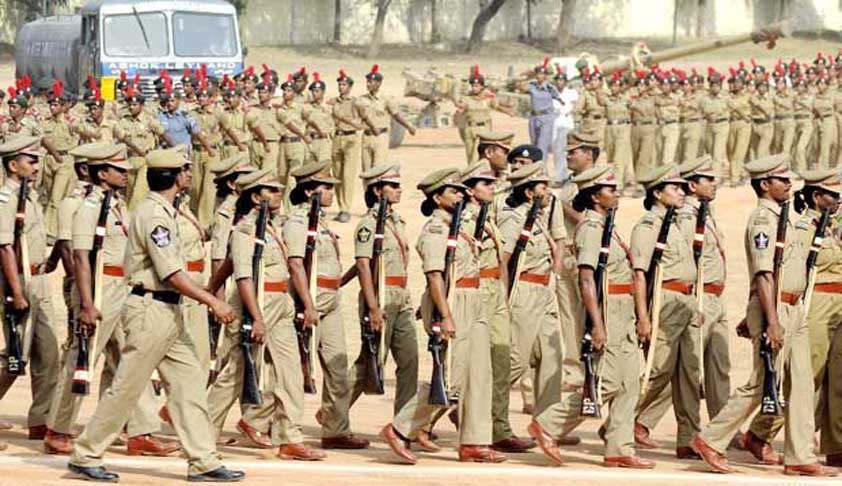Commissions, Court & Contempt : A Decade Of Police Reforms
Namit Saxena
22 Sept 2016 9:08 AM IST

The chief object of Police is prevention, investigation and detention of crime and maintenance of law and order. The police system in India is guided & governed by the colonial Police Act of 1861 which was continued after independence. Following the mandate under Section 3 of this Act, ‘Police’ was included in the State list of the Seventh Schedule of our Constitution giving exclusive power to states to govern police. Since independence, we have witnessed abuse of this power by ruling parties in states during emergencies, communal riots and mega scams. A sense of general distrust against police prevails nationwide and judiciary & various ruling establishments, each individually have miserably failed to cure the defects in the police system.
The first attempt to reform the police system was made in 1902 when the second Police Commission headed by A.H.L. Fraser was formed. It unfortunately affirmed the 1861 Act. The Janata Party Government in the aftermath of abuse of police powers during emergency, appointed a National Police Commission in 1977. The Commission submitted eight extensive reports in 1981. Since then, many commissions and committees have been formed to look into reforming the police - Gore Committee, Malimath Committee, Padmanabhaiah Committee, Thomas Committee and the Police Act Drafting Committee (Soli Sorabjee Committee) which produced the distinguished Model Police Act, 2006.
In a PIL filed by two retired police officials Prakash Singh & NK Singh and an NGO Common Cause seeking directions to grant functional autonomy to police and to enhance police accountability, the Supreme Court delivered a landmark judgment exactly 10 years ago and pronounced 7 binding directives for police reforms to make Police more people-centric instead of ruler-centric. The seven directions in a nutshell were formation of State Security Commissions, transparent selection procedure and minimum tenure of the DGPs of states, Minimum tenure of IGs of zones and ranges and all officers down to the rank of SP, a circle officer and an SHO, Separating investigation from the routine law-and-order mechanism, forming a Police Establishment Board, Constituting a police complaints authority, and forming a National Security Commission. The states were initially directed to file compliance report within three months, however the court extended the deadline till 31st March 2007 later. Interestingly, 8 states in the meanwhile moved review petitions against the judgment which were dismissed and a contempt application was moved against non compliance by the petitioners.
The states instead of complying with the directions chose to play with them using the proviso in the judgment which held that the order would be operative “till such time a new model Police Act is prepared by the Central government and/or the state governments pass the requisite legislation”. The non compliance was so massive that the CJI was forced to observe during further oral hearings in contempt proceedings- “Not a single state government is willing to cooperate. What can we do?” The court appointed a monitoring committee headed by Justice Thomas which vide its 2010 report displayed extreme dismay over how states attempted to dilute all directions.
Since pronouncement, although 17 states have passed new Acts and 12 have issued executive orders but none have enacted the directions in spirit. The Supreme Court had asked the states to choose any of the models on Security Commission suggested by NHRC, Ribeiro Committee or the Soli Sorabjee Committee, all of which had recommended it to be a multi-member body with sufficient representation from civil society and judiciary. No state followed. Transfers and postings bring in maximum political influence as they act as a whip against officials but barring Bihar, Gujarat, Karnataka and Kerala, no state has agreed to give powers of transfer to the Police Establishment Board. Most states have refused to give more than one year fixed tenure to DGP irrespective of superannuation except Gujarat, Kerala, Karnataka and Rajasthan. Vague reasons for DGP’s removal tenure range from ‘public interest’, ‘incapacitation’ and ‘administrative exigencies’ to ‘any other reason’ making him a puppet in political hands. Except Kerala and Karnataka, no state has provided for complete separation of law and order and investigation duties. Among the 17 states, only Assam and Tripura have set up Police Complaints Authorities to hold the uniformed men accountable. The Centre has also not yet set up the National Security Commission.
Even after 10 years, the Prakash Singh’s case and the contempt in it is still pending before the Supreme Court and the states have been seeking modification of the directions passed. Undoubtedly, it is extremely important to secure professional independence for the police to function as an impartial agency and any move seeking review of the Supreme Court directions must be resisted. The current practitioners of political powers are simply following the path their predecessors have adopted. As per a PIB release dated 8th March 2016, the Central Government has prepared a revised Model Police Bill, 2015 and placed it in public domain for comments. Let us hope it will not take one more decade to merely invite comments and sit over it. Nevertheless, the struggle for reforming the police goes on!
Namit Saxena is an Advocate in Supreme Court of India.



